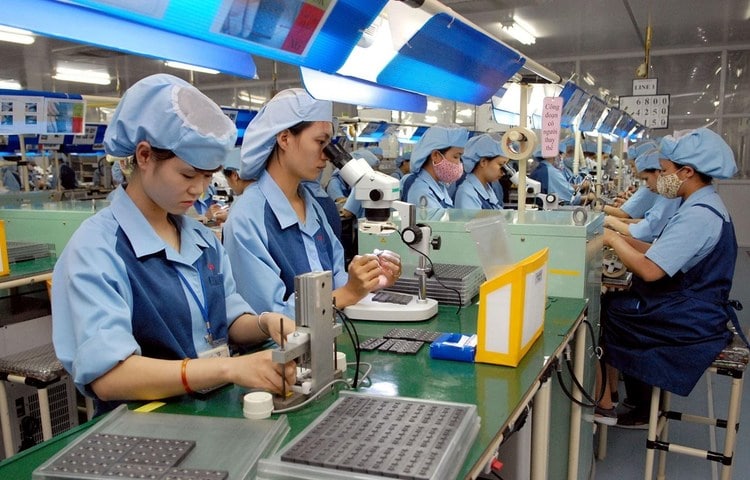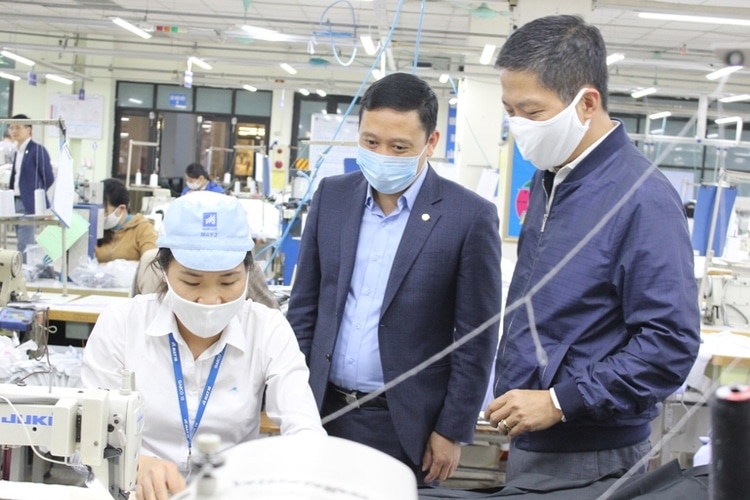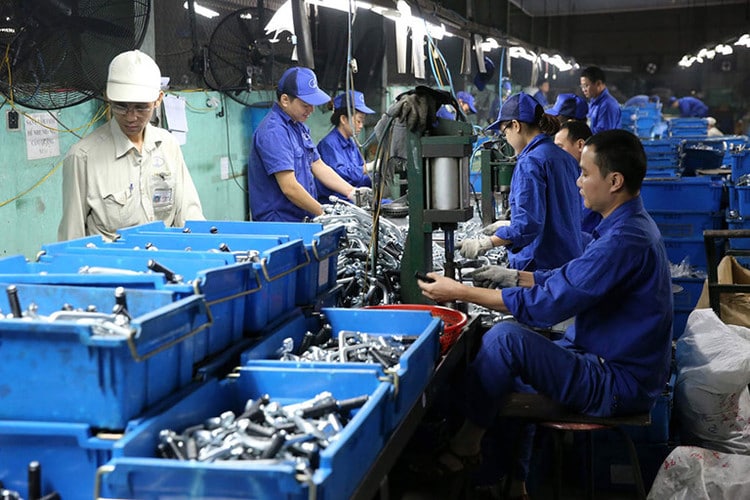Despite a pervading sense of materialism typical of a developing economy, social entrepreneurs are finding fertile ground in Vietnam.
In Vietnam, parents would be extremely worried if young people want to work for a social enterprise, while in Australia, the whole family would be proud, said Truong Thi Nam Thang, Director of the Hanoi-based National Economics University’s Center for Social Innovation and Entrepreneurship.
“Typical of a society in transition, we still have to take care of our basic needs and are very materialistic, often asking each other how much money we make and whether we have a beautiful car or house,” she said in a recent talk on corporate sustainability organized by global workforce solutions company ManpowerGroup in Hanoi.

Thang said in contemporary Vietnamese society, successful traditional entrepreneurs are seen as occupying the highest social status.
Social entrepreneurship, on the other hand, does not pursue profit as an end in itself but as a tool to achieving some social good.
Thus more developed economies such as Australia, Canada and Singapore rank among the Thomson Reuters Foundation’s 2019 list of the top 10 countries for social entrepreneurship, Thang said, pointing out people are more receptive to being a social entrepreneur.
Within the Vietnamese business community, she said the idea of corporate social responsibility exists in various forms and degrees, an older, watered-down concept of social responsibility compared to the more drastic and recent ideas of corporate sustainability and social entrepreneurship in the global context of young people’s growing concerns for ethics and truth.
With corporate sustainability and social entrepreneurship, businesses try to balance the interests of shareholders and wider stakeholders, and ensure environmental and social justice for future generations.

Despite a common misperception that social entrepreneurship is only for the rich, Thang and other experts at the event suggest that there is a lot going on in this quarter here in Vietnam.
Indeed, according to a 2019 survey commissioned by the British Council, the seeds of social enterprise were sown here in three phases: before 1986 by collectively owned cooperatives serving disadvantaged communities, from 1986 to 2015 by foreign-funded NGOs and from 2015 when social enterprises were legalized.
In 2014 social enterprises were incorporated in the Enterprise Law, making Vietnam one of just a few countries to give them such a legal status. The law defines social enterprises as businesses which reinvest at least 51 percent of their profits to achieve their registered social or environmental objectives.
According to the British Council study, Vietnam has over 19,000 social enterprises made up of SMEs, cooperatives and NGOs. This count is close to a UNDP estimate.
In an earlier study in 2018 on social impact businesses (a wider concept than social enterprises) funded by the National Economics University and UNDP, the number of such businesses were found to be around 22,000, or 4 percent of all active enterprises.
Social enterprises in Vietnam, often micro firms (with 15 people and an annual income of less than VND1 billion, or $43,000), aim to create jobs in diverse sectors ranging from agriculture to education, support disadvantaged people such as those with disabilities and encourage women and young leaders.
Most social enterprises in Vietnam are profitable, relying on their own business activities as their main source of income rather than donations or grants.
Speaking along with Thang at the same corporate sustainability event, Nguyen Diem Anh, founder of the NGO Center for Research and Media for Sustainable Development (CSD) stressed the importance of social enterprises staying competitive in the market with good products and services rather than capitalizing on some touching social story.
Social enterprises hiring disabled people, for instance, should attract customers first and foremost with high quality, beautiful design and reasonable prices rather than their social mission though the later does help a great deal in brand building, she said.

“We wouldn’t want our customers to buy our products once for charity and then never return,” she said, citing Kym Viet as an example of competitiveness.
Founded by a group of people with disabilities in 2013, Kym Viet hires hearing impaired and mobility impaired people to make stuffed animals. Since 2017 the company has been making profits, employing 18 people and achieving an annual turnover of VND2.5 billion ($108,000).
Pham Viet Hoai, Kym Viet’s chairman, recently told local media that now that his company is in good shape with regular clientele and plans to expand and recruit more disabled people, its greatest challenge is accessing funding.
In the British Council study too, over half of the surveyed social enterprises said they faced difficulties in raising funds.
Thang said the best one can do is to invest in social enterprises themselves.
Anh said having a community of like-minded social enterprises is also important because such a network can assess and promote members’ products among themselves and to the wider society.
Thang said her team is also lobbying for a law that is similar to the U.K.’s Social Value Act which requires the government to allocate at least 15 percent of its expenditure to buy goods and services from social enterprises.
Source: e.vnexpress.net















